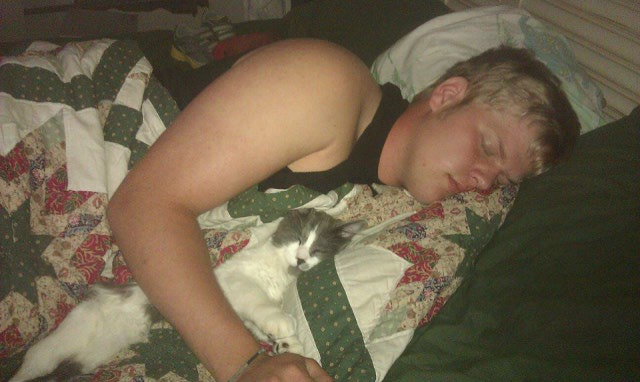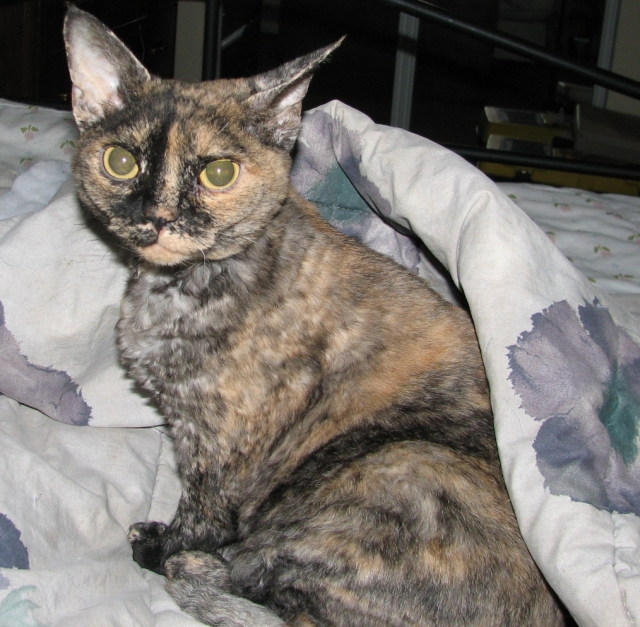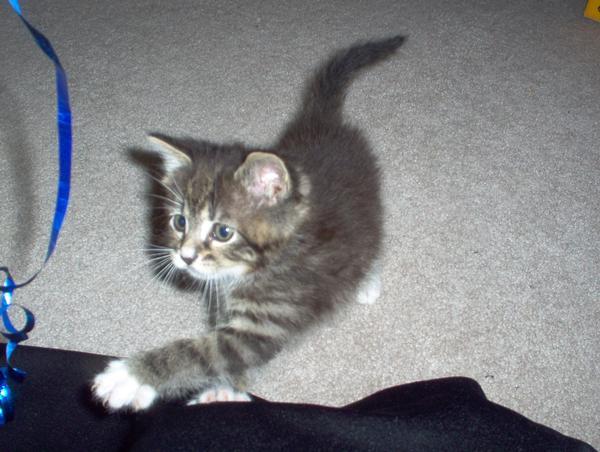QuestionHello Jessica, thanks for helping me with my question about mum being aggressive - maybe you could help me again with another problem.
I am in the terrible position of being a new breeder, thinking I've done everything 'right', and still have my first litter all get sick and die within a week.
Basically, all the kittens seemed to have some kind of respiratory virus. My vet says mum must be carrying it. I am confused because mum is up to date with inoculations, has tested negative for aids and leukemia and is fit and healthy. I had her fully vet-checked before she went to stud and she was pronounced 'A1 fit'. The only thing I can think of is that she does have an occasional 'sneeze'; she has always had this and it really is just a sneeze - she is never unwell, depressed, has runny eyes etc.. She was fit through her pregnancy. I did have her checked out because of the sneezing when she was about 6 months old, and the vet confirmed it was 'not cat flu, just a sneeze, nothing really to worry about.' The vet knew I intended to breed her.
I now suspect that this 'sneeze' is a virus that the kittens are now dying from. Can you tell me what it is likely to be, and what I should do about it? I really want to breed my queen, but am unsure what to do and don't want the same thing to happen with subsequent litters.
I know you are not a vet and can only put forward suggestions about what might be the problem, but I would really appreciate your opinion on the matter. My vet didn't explain anything to me and I don't know what to do for the best.
Donna
Thanks
AnswerOh, I'm so sorry! What a terrible thing to have happen.
I know your vet said she didn't have cat flu before, but if you wanted to get very involved, you could have a pharyngeal swab done on your kitty to check for the feline herpes virus and feline calici virus, the two main causes of cat flu, just to be sure. This would generally involve a light general anesthesia. A cotton swab would collect a sample from her throat and be sent to a lab. If she has an active enough infection to shed to the kittens, then tests would probably be positive.
The swabs could also test for chlamydia and bordetella. These are both bacterial infections which tend to cause milder sneezing symptoms in adult cats. However, unlike with the above viral infections, the body does not soon mount sufficient antibodies against the germs. Cats with these infections can struggle months and months before getting the infections under control. Some never get rid of the bacteria until finally treated with antibiotics. And the infections can be catastrophic in kittens. There have been some cases of bordetella killing kittens throughout entire shelters or catteries.
One final thing you might consider is running a coronavirus titer test on her. There are many strains of feline coronavirus. Most cause mild symptoms of loose stools or sneezing. A blood test can be run to check and see if she is carrying antibodies against the diseases. An extremely high titer would probably indicate an active infection, and it might be a good idea to wait a couple of months and retest to see if her titer has come down before breeding her again. If you ask your vet for the results, I would say anything that's above 1:1200 I would hold off on breeding. About 70% of cats, however, will be carrying a small number of antibodies against coronavirus at any given time, so a positive test on the lower side shouldn't discourage you from breeding. Anything 1:400 or lower is considered a negative test for all practical purposes. 1:700 is quite low and would indicate a long past infection.
I suppose any little virus can kill newborns, but I don't have any idea what other sort of infection a cat goes on carrying for months except possibly torovirus. This usually infects livestock but here in the US it did jump to dogs and cats a few years back. It causes upper respiratory symptoms and diarrhea, and symptoms may last for 3-9 months! I suspect you're in the UK? Not sure if any cases have been seen out there in domestic pets.
Unfortunately, most breeders or rescuers will have a most unwelcome experience with Fading Kitten Syndrome, and it's awful that yours had to be with your first litter. I've encountered vets who will deal with it in different ways, even at the same vet hospital. Some say kittens just days old are too little to give an antibiotic for fear of choking them, or that dosing is too difficult. My feeling is that they're dying anyway. What's the risk? And indeed, the kittens did all die. I've had another vet treat a mother with antibiotics on the idea that it passed in breast milk. The kittens did recover from the initial infection but didn't survive two more weeks, so I'm not certain how well I agree with that approach, either. Then I've had a couple vets who've agreed to give a couple drops of amoxicillin to kittens who were under a week old and clearly not going to make it. Those kittens did recover. For obvious reasons, this is the way I prefer to go when I know a litter is in trouble! It's something you'll have to discuss with your vet, of course. If you're going to be breeding, I'm sure you'll get to know him quite well.
FOLLOW UP: Regarding your curiosity as to my guess about your location, the term "cat flu" tends to be used more often in the UK than the US. Also the word "mum" as opposed to "mom". So there's my secret! Hope all goes well!

 What is the breed of my cats
Question
1st
Hello Ali
Thanx for giving us time to get
What is the breed of my cats
Question
1st
Hello Ali
Thanx for giving us time to get
 Sick kitty
Question
Kelso
Hi, I rescued a feral cat who was
Sick kitty
Question
Kelso
Hi, I rescued a feral cat who was
 Missing unnuetered cat for 11 days worried sick
Question
My Sweet Boy Bel
First I want to thank
Missing unnuetered cat for 11 days worried sick
Question
My Sweet Boy Bel
First I want to thank
 My cat is jealous of my other cat
QuestionQUESTION: Hi Ali. I hope you can provide
My cat is jealous of my other cat
QuestionQUESTION: Hi Ali. I hope you can provide
 runts
Question
stubby(my cat)
Can the mother chew off
runts
Question
stubby(my cat)
Can the mother chew off